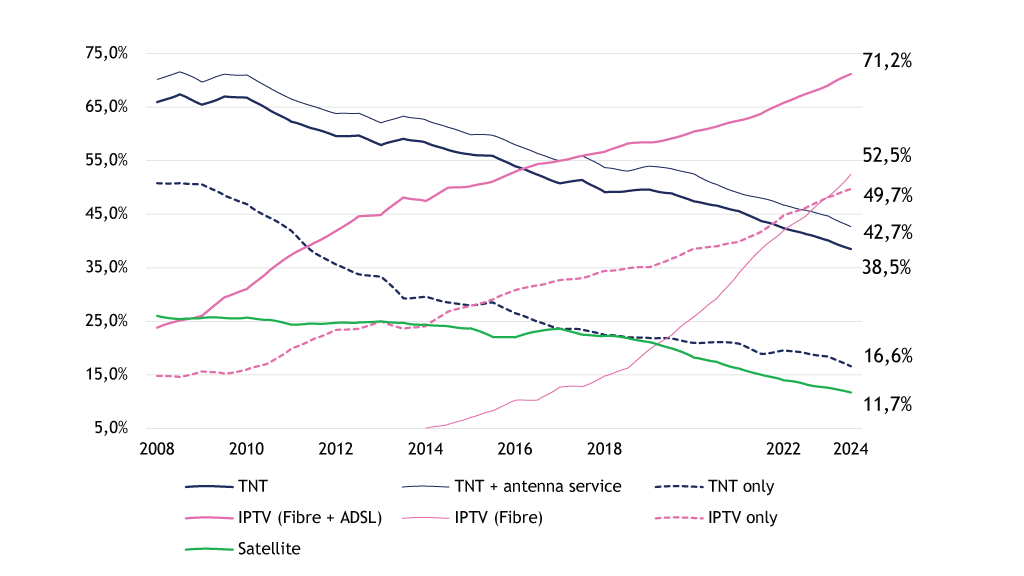The French ministry of culture has opened a public consultation on the prospects for broadcasting and the distribution of television services in France beyond 2030. It echoes a similar discussion that is in progress in the United Kingdom.
The current legislative framework guarantees access to digital terrestrial television in France until the end of 2030. It requires a report on the prospects for broadcasting and distribution of television services in France to be provided to parliament before the end of 2025.
The French digital terrestrial television network offers 25 national services, soon to be entirely in high definition, a free ultra-high-definition service available to 75% of the population, 42 local services, and 5 paid services, 4 of which from Canal Plus are due to cease broadcasting in 2025.
The use of terrestrial television has been in constant decline in France since 2010, while internet television services have been rising, adopted by over 70% of households.

Terrestrial television, known in French as TNT, has fallen to 38% of households, with 16% relying on it exclusively.
It is mainly used by low income or elderly households, while IPTV, which requires a subscription, appeals more to urban, young, and wealthy households.
The consultation document suggests there is a risk in maintaining the status quo, leading to a growing dissatisfaction with traditional reception methods, which could be relegated to last resort solutions for the most deprived or isolated users.
A second scenario describes a hybrid model, enabling interactivity through HbbTV and DVB-I specifications, enriching linear services with interactive services delivered over the internet.
There is also the potential to shut down networks dedicated to television broadcasting, allowing broadcasters to focus on developing online services. The consultation suggests that this scenario poses major challenges in terms of the saturation of telecommunications networks, energy consumption, reliability in the event of a crisis, sovereignty of the audiovisual offer, and the prominence of French services. It says this would require a profound revision of the regulatory model, which is currently based on licensing of terrestrial broadcast services.
This is set against the background of decisions about the use of radiofrequency spectrum currently allocated to television broadcasting.
The report says that some countries, citing the Netherlands and the United Kingdom, are debating the possibility of reassigning all digital terrestrial television frequences, although it says the outcome of these debates is uncertain. Switzerland is the only country in Europe to have stopped broadcasting terrestrial television over the majority of its territory, with the exception of border regions.
In September 2024, the French communications regulator Arcom encouraged digital terrestrial channels to come together within a common application. It notes that no such service has succeeded in breaking through in France, while common platform models have been adopted abroad. Notably these include Freeview and more recently Freely in the United Kingdom, Loves.tv in Spain, and SimpliTV in Austria.
The ministry is inviting responses to the consultation, to be submitted by 21 March 2025.
